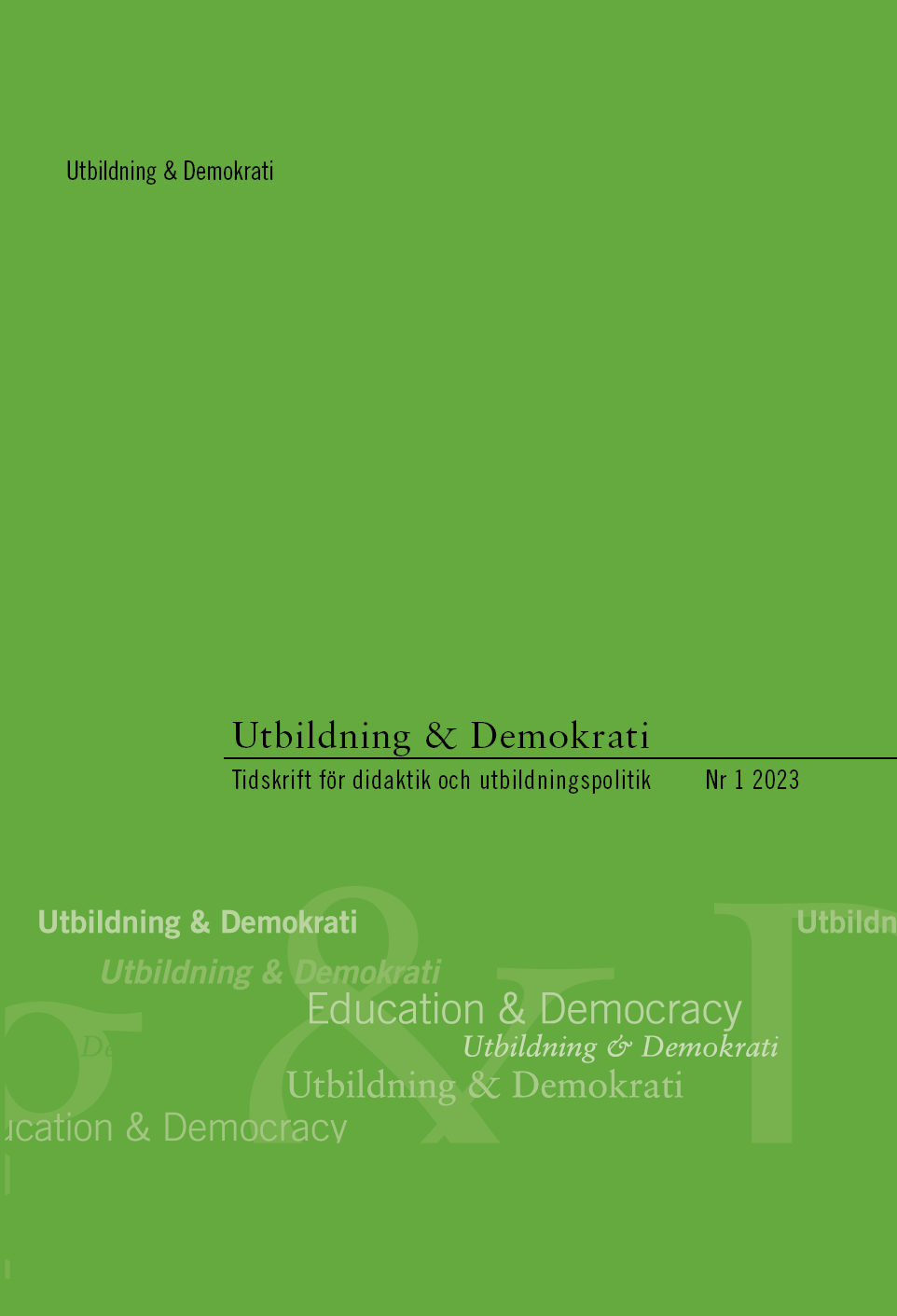Studentexamen under 1900-talets början
En studie av studentprovsfrågor i modersmålet mellan år 1901–1930
DOI:
https://doi.org/10.48059/uod.v32i2.2205Nyckelord:
Sweden, history, social studies, modernity, secondary school examsAbstract
Student examination at the beginning of the 20th century – A study of exam questions between 1901 and 1930. The purpose of this article is to examine the subject and knowledge ideals that emerge in the student questions posed in secondary school exams in the subject of Swedish from 1901 until 1930, particularly questions directed towards history or questions reminiscent of social studies. Sweden was in a significant social transformation with major political divides during the early 1900s, which is partly similar to Sweden’s situation today. The theoretical framework in this article is based on the concepts of pre-modernity and modernity, with an approach that leans towards the German didactic tradition. The primary material is secondary school exam questions, but it has also been supplemented with the government’s public inquiries and statistics, as well as educational historical articles. The method was thematic analysis with a deductive approach, which involved categorizing student questions. One result that this study shows is that there is continuity in history questions. There were always three questions, one about Sweden, one about ancient Rome or Greece, and one about Europe. Another result is that students preferred to answer questions related to the history subject rather than other subjects. A third result is the effect on student exam questions by the increasing modern society, especially in the field that later became a field of its own, social studies.
Downloads
Publicerad
Nummer
Sektion
Licens

Det här verket är licensierat under en Creative Commons Erkännande 4.0 Internationell-licens.




